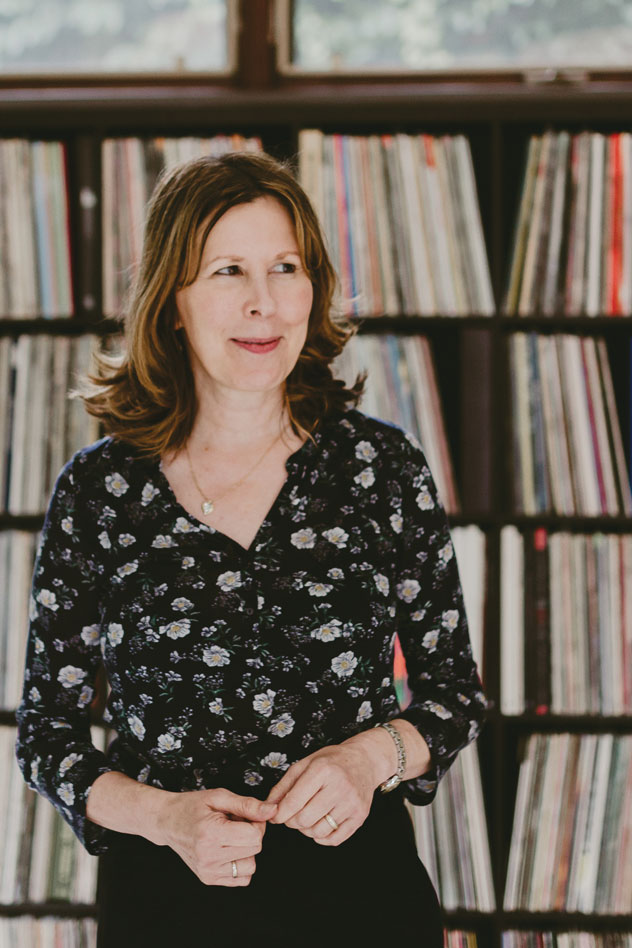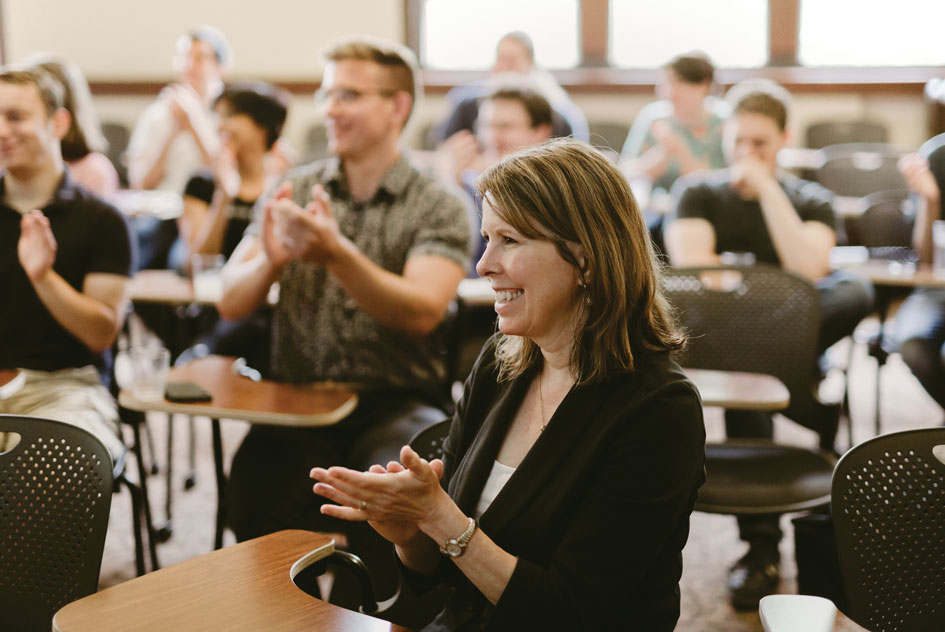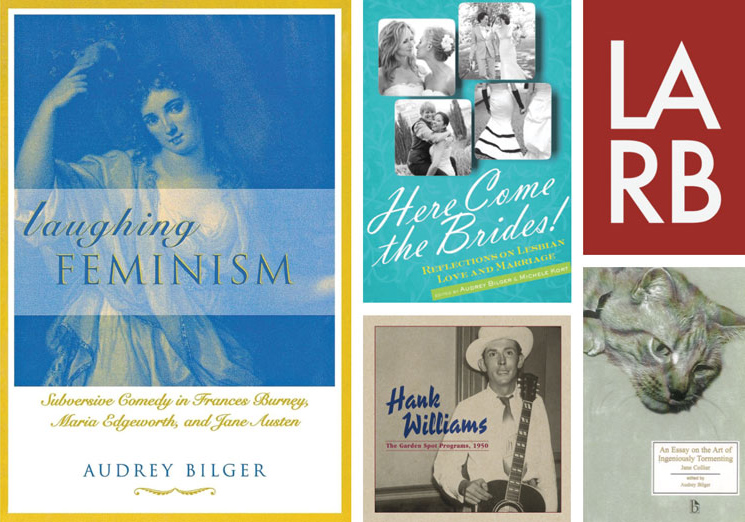Scholar. Writer. Teacher. President.
There was no script for Audrey Bilger’s career. So she wrote her own.
In 2010, Audrey Bilger, then a literature professor at Claremont McKenna College, got an urgent request from the dean of the faculty: could she save the writing center?
Having experienced a series of leadership changes over the past decade, the college’s writing center was facing some steep challenges. It suffered from high turnover and low morale. Many professors didn’t want anything to do with it, in part because they questioned its relevance, and there had been a revolving cast of directors who had struggled because of the center’s marginalization. It had become an
institutional orphan.
Bilger hesitated over her response. The center had no direct connection to her own scholarship, which centered on 18th-century English literature and gender studies. Nor did she have a background in rhetoric or composition. Some of her faculty colleagues, she knew, scorned the center as a remedial program, and others were suspicious of the idea of peer writing tutors. “I wasn’t sure I wanted to do it,” she says now. She wasn’t sure the center could be saved.
But as she considered the centrality of writing in her own life and work, she realized that she could rethink it. Something she had long told her students and firmly believed was that writing is a superpower. She had always loved helping students find their voice through writing and working with colleagues to discuss and improve one another’s work. She was also committed to public writing and engaged scholarship.
Later that year, Bilger relaunched the center with a new mission—to promote excellence in writing and public communication. As founding faculty director of the renamed Center for Writing and Public Discourse, she brought in speakers, put on workshops, and oversaw tutoring for 700 students per year. And she put a special emphasis on helping students—and professors—connect with a wider audience.
“Writing for the public is not about dumbing down or watering down,” she says. “It’s about finding a way to make the ideas live outside the specialized realm so they can circulate more widely. If we want to have an impact on the world, we need to find opportunities to engage with a broader audience.”
The revamped center was a smash hit. For Bilger—Reed’s new president—it was an important milestone in a distinguished career that includes three books, scores of articles, truckloads of awards and honors, and side gigs as journalist, drummer, and DJ. The episode also provides a telling example of her intellectual transformation. As a young person, she looked for answers in books. But over time she learned that “the book” isn’t always right—and that sometimes, when you find yourself in uncharted territory, you have to write your own script.
■ ■ ■
Bilger (pronounced with a hard g as in “grrr”) was born in West Virginia, the granddaughter of former coal miners. When she was young, her family moved to Oklahoma, where her father worked in sales for an aluminum company and her mother took care of the family, which included her and her three brothers. Growing up, she always had her nose in a book: Nancy Drew mysteries; The Lion, the Witch, and the Wardrobe; The Lord of the Rings. “I read anything I could get my hands on,” she says.
Starting in 1978, she attended Oklahoma State University. Like many of her OSU peers, she was a first-generation college student. Her interest in writing and the humanities stood apart from the norm, and she enjoyed classes with long reading lists and lively discussion sessions. In her sophomore year, she took a class that changed her life—a philosophy course focused on the ancient Greek tragedies. The philosophy department at OSU was small and tight-knit; it was her first experience building relationships with professors. “I wouldn’t be where I am now if I hadn’t had teachers who took an interest in me, who noticed me, who encouraged me to push a little harder,” she says. “Like the best mentors, these were teachers who conveyed the message: ‘I see something in you.’”
During her senior year, she took an English class on Romantic literature and came to love the work of the poet and printer William Blake. “The combination of image and word was really powerful,” she says. “Sometimes I would look at the Oklahoma sunset with its colorful Blakean cloudscapes and think that, even though Blake was writing almost two hundred years ago, he was speaking to me.”
After graduation she went to the University of Virginia to study English literature. It was an exciting time to be in grad school. Literary theory, gender studies, and critical race theory were shaking up the academy and revolutionizing decades, even centuries, of established dogma. Bilger began to explore authors and traditions that had been overlooked, misunderstood, or trivialized by generations of scholars. Reading Jane Austen, she discovered a rich, deeply ironic voice that delivered a devastating critique of the social expectations of the Georgian era by deploying an unexpected weapon—humor. “It became clear that the female protagonists are often at odds with the world around them. The novels are making fun of the assumptions that society makes—and this is what Jane Austen subjects to ridicule.”
At UVA, Bilger also discovered her love of teaching. “When it works in the classroom, when discussion takes off and ideas are forming, and people are learning, there’s a kind of magic,” she says. “I just realized that that’s how I wanted to spend my days.” She served as program coordinator for the Women’s Center, organizing events and bringing in speakers. She also was a DJ for the college radio station, WTJU, where she spun vinyl by emerging artists such as REM, Nirvana, Prince, Jane Siberry, and more.
In 1992, after earning her PhD (she won a prize for her dissertation on the subversive comedy of Jane Austen), she took a job as a visiting English professor at Oberlin College. It was her first sustained encounter with a small liberal arts college, and she instantly grasped the transformative power of the model. “There were amazing conversations at all hours of the day,” she says. “I wish I had known about this kind of school when I was a student.” In 1994, she joined the faculty in the literature department at Claremont McKenna College in Claremont, California, and soon became the coordinator of the gender studies program.
During her time at CMC, she got a manila envelope from a former student containing the premier issue of a new feminist zine. The former student was Lisa Jervis, and the zine’s title was Bitch: Feminist Response to Pop Culture. The fledgling magazine soon won an avid national following for its hot takes on pop culture. Before long, Bilger was contributing articles—one of her earliest pieces was an essay on the phrase “you guys.” (From a feminist perspective, she found the phrase troubling, but on a personal level she found it hard to scrub from her vocabulary.) This essay ended up circulating widely and was anthologized in collections on gender studies and linguistics.
The experience of writing for a broader audience reinforced her conviction that scholars can play a vital role in the world beyond the classroom. She went on to write for a long list of publications, from the Los Angeles Times to the San Francisco Chronicle to Ms. magazine. As she navigated the uncharted waters of being an English professor, a feminist, and a public intellectual, she was also rewriting the script of her personal life.
■ ■ ■
Bilger learned to play the drums when she was teaching at Oberlin. She had always loved music, but drumming provided a physical dimension to performance that she found captivating. She started an all-female blues band in LA; they played covers at coffee shops and bars. “I learned a lot about leadership from being in a band and particularly from playing drums,” she says. “There’s something about being in that position—in the back, laying down the rhythm, having other people come in on top of it— that creates a special sort of teamwork. Also, bands have to figure out how to share the stage and function as a group.”
One day, her band was scheduled to play a show at the local Borders bookstore. A week before the gig, she decided to go to the store to check out the venue. Impressed by the band that was playing, she struck up a conversation with the rhythm guitarist during the break. The next week, as her band played, she looked around the store and noticed that the rhythm guitarist, Cheryl Pawelski, was in the audience. “We had a long conversation about music—and it never stopped,” she says. After being together for 12 years, they were legally married in 2008, shortly before California voters approved Proposition 8, which banned additional same-sex marriages in the state (and which was later annulled by the U.S. Supreme Court). Early on in their relationship, Pawelski began to bring Bilger in as an editorial consultant on musical projects for Pawelski’s record label, Omnivore Recordings, which eventually included a release of previously unknown recordings by country singer Hank Williams that garnered a 2014 Grammy Award for Best Historical Album.
Meanwhile, Bilger was busy racking up a formidable portfolio of scholarly achievement at Claremont McKenna. She published Laughing Feminism, the first study to examine Jane Austen’s relationship to a tradition of Enlightenment feminist humor; edited a critical edition of Jane Collier’s satirical 1753 satire, An Essay On The Art of Ingeniously Tormenting; and coedited an anthology of writing on lesbian love and marriage, titled Here Come the Brides! She wrote scores of articles, book reviews, and essays on everything from Jane Austen to antifeminism to the secret history of Wonder Woman. She chaired the literature department, sat on dozens of committees, and chaired a working group on academic resources for international, first-generation, low-income, and underrepresented-minority students.
Her experience relaunching the writing center gave her a new insight on education as a collaborative endeavor. “I discovered that I liked building teams and developing programs that served the college more broadly,” she says. She began to spend more time thinking about how to make college work better for students from all backgrounds, in the classroom and beyond it.
In 2014, she was nominated to take part in the American Council on Education’s yearlong fellowship program to train leaders in higher education. As part of the program, she shadowed the provost of UC Riverside. “It was a transformative experience,” she says. “It gave me invaluable perspective on some of the challenges facing higher ed today.” Just months after completing the fellowship, she was hired to serve as the chief academic officer at Pomona College, where she championed the college’s academic mission and the work of its faculty. Her commitment to liberal arts education, to the teacher-scholar model, and to the value of higher education for society drew her to Reed.
Her protean career, from Jane Austen to Jane Siberry, from analyzing discourse to crashing cymbals, will no doubt prove invaluable at the unique institution that is Reed. And as the first woman to occupy the president’s office, she will once again have the opportunity to rewrite the script.

Audrey Bilger: In Her Own Words
How have the liberal arts shaped your career?
I am the product of public higher education. In the high school I attended in Oklahoma, the majority of my peers did not attend college, and I never even heard of places like Reed. When I started my first faculty job at Oberlin, I fell in love with and dedicated myself to the liberal arts model. I find inspiration in helping talented undergraduates work with amazing faculty who believe in the educational mission of the college and seek to advance knowledge through their research. Liberal arts education is all about connections—among individuals within our community, across time in pursuit of answers to the most difficult questions, and across boundaries and perceived differences. It is an honor to be part of an enterprise that changes lives and helps to make the world a better place.
What is your vision for Reed?
I come to Reed with more than a quarter of a century of experience in liberal arts education. Twenty-four of those years I spent in classrooms as a faculty member, so I really understand the value of the teacher-scholar model that is at the heart of Reed. From my experience, I know that a single leadership vision rooted in one person makes no sense for our community. I believe in a shared vision, one that is participatory and that brings in many voices. The role of the president is to help articulate that cocreated vision and to share the message within the college and with the world outside.
You’ve talked about “inclusive excellence.” What does that mean to you?
In the pursuit of knowledge and in our educational mission, excellence is a fundamental goal. In order to achieve excellence, we need to bring a diverse array of voices and perspectives into dialogue and polylogue. We also need to make sure that we create the conditions for our students to succeed, recognizing that not everyone has had access to the same kinds of resources. As a first-generation college student, I know what it feels like to come to the table with a sense of being behind, of not having the same background as more privileged students, and throughout my career, I have encouraged students who think that everyone else knows more than they do to persist and to believe in their capacity to learn, to grow, and to contribute.
What is a successful college education?
The best education is a starting point for a lifetime of curiosity and engagement. We are educating students for jobs that might not yet exist, and we have no idea what twists and turns their lives might take. What we do know is that a broad-based education helps prepare our students to be adaptable and gives them the tools to thrive. We want them to lead meaningful lives and to have inner resources to sustain them when they face challenges, which they inevitably will. We also want our students to become engaged members of society, and a liberal arts education prepares them to speak up and participate.
What does it mean to learn something when virtually all human knowledge is available with a couple of keystrokes?
Online resources have made it possible to gain access to information rapidly; however, the ability to assess, to process, to make connections—to make sense of that information—requires critical thinking. We learn in order to discern. Even more important, we learn so that we may produce knowledge and create.
You’ve written about the subversive role of comedy. Should we take comedy more seriously?
As a genre, comedy tends to be underestimated and seen as “light” entertainment. In my research, I have examined how humor and comedy can be enlisted to challenge the status quo and promote new ways of thinking. Comedy is multifaceted: it can provide relief and celebration; it can include elements of satire and social criticism; and, of course, it can make us laugh and assist us in coming to terms with the incongruities of the human condition. It’s definitely worth taking seriously.
Are the liberal arts still relevant in 2019? Shouldn’t first-year students be writing Python instead of reading Plato?
The beauty of a liberal arts education is that we recognize that there is no such thing as Python versus Plato. Studying a wide range of disciplines, learning about art, performing, creating, connecting to society—whatever working lives our students pursue, they will have a rich tool kit that will prepare them to succeed.
Should Reed work harder to be more integrated into the cultural life of the city of Portland?
I do not believe in the ivory tower—in a separation between the college and the world around it. I have lived in other college communities in which we talk about the “bubble” that orients our focus inside the campus boundaries, and I see that inward orientation as an unhealthy one. We are so fortunate to be located in this vibrant city and to be surrounded by so much natural beauty and grandeur. My hope is that students who come to Reed have numerous opportunities to get to know the city and to benefit from a network of partnerships between the college and organizations within Portland. Portland offers so much to Reed, and Reed has a great deal to offer to Portland. I look forward to exploring and strengthening these important relationships.
celebrate!
Join us for the inauguration of President Bilger on Friday, October 4. We’ll have calligraphy, weathergrams, and free-wheeling cult band NRBQ.
Tags: Academics, Editor's Picks, Institutional

